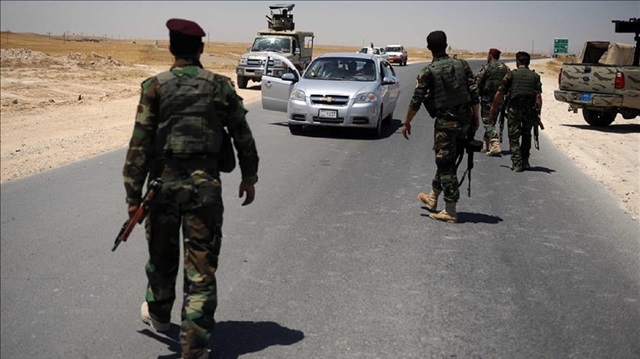
PKK terrorists recruit young Ezidis in Sinjar and send them to fight in neighboring Syria, Ezidi leader asserts
The Iraq-based Ezidi Spiritual Council strongly condemns the PKK terrorist group’s practice of recruiting young Ezidis in Sinjar and sending them to fight in northern Syria’s Afrin district, according to council chairman Kerim Suleyman.
Speaking to Anadolu Agency on Friday, Suleyman called on the international community, especially northern Iraq’s Kurdish Regional Government, to take steps to expel the PKK -- along with Iraq’s Hashd al-Shaabi -- from Sinjar.
A largely Shia paramilitary force, the Hashd al-Shaabi was formally incorporated into the Iraqi armed forces in 2016.
“We strongly condemn this practice by armed groups of sending Ezidi boys and girls from Sinjar to Afrin,” Suleyman said. “This is unacceptable.”
He went on to assert that all armed groups currently operating in the region should be replaced by Iraqi military personnel and Peshmerga forces.
Blaming the PKK and other armed groups for the mass displacement of Ezidis in recent years, Suleyman added: "These groups threaten the region’s stability. Displaced Ezidis don't want to return to Sinjar just to be forced [by armed groups] into military service.”
Ezidi Mahma Halil, a former district governor of Sinjar, said PKK terrorists had begun sending militants across the Iraq-Syria border to Afrin following the launch last month of Turkey’s Operation Olive Branch.
Saying local officials had “clear evidence” that militants were being dispatched to Afrin, Halil said: "Many PKK militants have been sent from Sinjar to Afrin via the Iraq-Syria border.”
He also criticized Iraq’s central government for remaining silent to the PKK’s recruitment of young Ezidis in Sinjar -- a practice, he said, that had been going on “for years”.
Halil went on to lament the fact that both Baghdad and the UN had failed to end the PKK’s activities in Sinjar, which is located in Iraq’s northern Nineveh province.
In mid-2014, the PKK managed to establish a foothold in Sinjar on the pretext that it was “protecting” the local Ezidi community from the Daesh terrorist group.
Hello, the comments you share on our site are a valuable resource for other users. Please respect other users and different opinions. Do not use rude, offensive, derogatory, or discriminatory language.
The floor is all yours.










